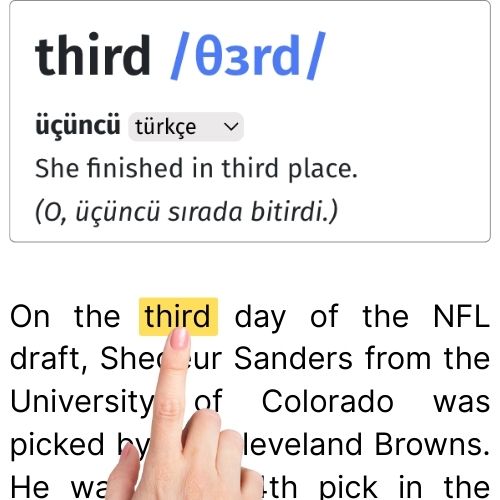Merak ettiklerin burada bitmesin!
Peki ya o sınırı tamamen kaldırsak? Hem de yalnızca ayda bir kahve fiyatına?
Premium'a geç

Kseniia Petrova never thought she would have big immigration problems. It has been 68 days since she was stopped at Boston’s Logan Airport. She was traveling with frog embryo samples that she did not say were there.
Petrova is from Russia and works at Harvard University. She was in the United States legally. But now, she is in a detention center. This is a big issue because President Trump wants to deport many people.
Petrova, who is 30 years old, is in a detention center in Louisiana. She is waiting for a judge to decide if she will go back to Russia. She is scared she will go to jail there.
The Department of Homeland Security says Petrova broke the law on purpose. But her friends want her to be free. They say this mistake should only get a fine.
While Petrova waits, she is in a crowded room. Her coworkers say their research will be slow without her. They need her for important work.
“The truth is with me,” Petrova said in a video call from the detention center. She used an old phone and tried to block out other voices.
Behind her were metal beds, some tables, two microwaves, and a TV showing CNN.
“Almost all our life is here,” Petrova said.
Many women walked around her. She said many were from Latin America. Some crossed the border without permission. Others had been in the country for a long time and were stopped after missing a check. Some were there without any clear reason.
Petrova does not know if there are other scientists in the room with 99 women.
She said the food is “really bad.” It is mostly bread and rice, with no fruits or vegetables. Detainees usually get one hour outside unless it rains. It often rains in Louisiana.
People feel cold at night. The showers are very hot. There is no privacy, and it is noisy, which makes it “hard to live,” she said.
A few months before, Petrova was on vacation in France. She visited a lab that works with frog embryos and got samples for research.
When she went through customs in Boston, they asked her about the samples. Petrova said she did not know she had to say what she was bringing. After asking her questions, they said her visa was canceled.
The Department of Homeland Security said Petrova was stopped for “lying to federal officers.” They say messages on her phone showed she planned to sneak the samples in.
Petrova’s boss, Leon Peshkin, said the samples were not dangerous.
“I don’t think she did anything wrong,” Peshkin said. “If she did, she should only get a warning or a fine.”
Harvard said they are watching the situation.
Petrova has special skills for her work. Peshkin said she helps study how cells divide using frog embryos.
“She is very important for every project in the lab. I don’t know how we will continue without her,” Peshkin said.
Will Trim, a fellow and Petrova’s roommate, agreed. He worked with her on computer scripts for a special microscope that can help find cancer.
“Some important research will stop if she is gone,” Trim said.
Trim flew to Louisiana on Friday to visit Petrova. She can have one visitor each week.
The detention center is one of nine in Louisiana. Many detainees feel alone because they are far from their families and lawyers.
Louisiana has had other big immigration cases, like Mahmoud Khalil, an activist from Columbia University.
Like many others, Petrova left her country to escape problems. She left after Russia invaded Ukraine in February 2022.
“If I go back, I am afraid I will go to jail because of my beliefs against the war,” Petrova said.
A judge in Louisiana said the government’s case is not strong enough. They gave ICE a week to find better proof.
Many people in science are watching Petrova’s case. Some are worried it could make it hard to get foreign scientists to work in the US.
“I think people think foreign scientists are lucky to be in the US. I feel it is the opposite,” Peshkin said. “Foreign scientists come here with skills. They help the American science community.”